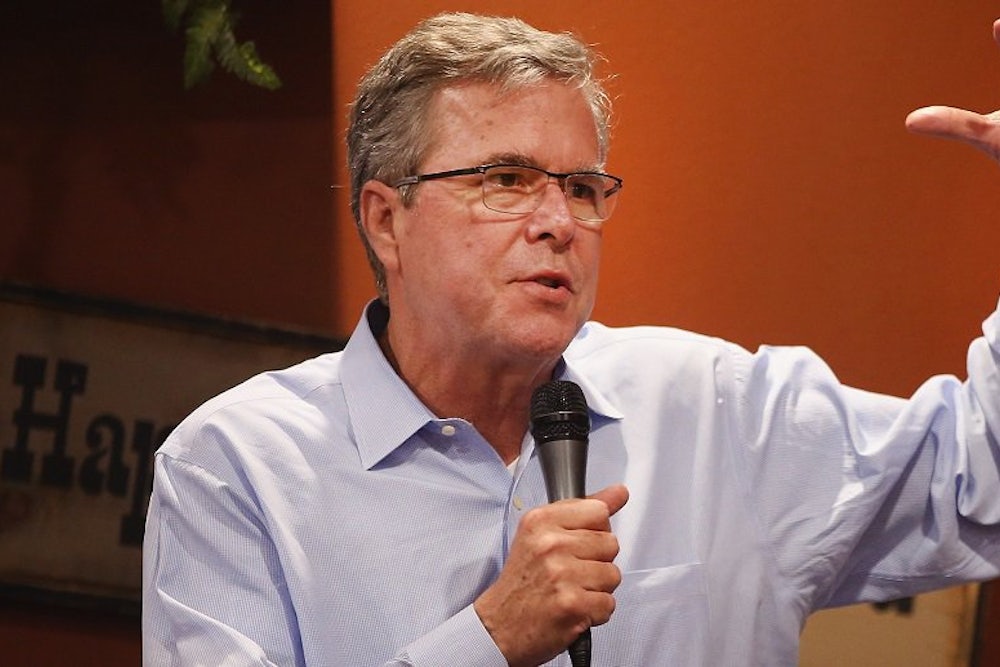In South Carolina on Tuesday, former Florida Governor Jeb Bush revealed the inherent contradiction in the Republican position on the minimum wage. “We need to leave it to the private sector. I think state minimum wages are fine,” Bush said. “The federal government shouldn’t be doing this. This is one of those poll-driven deals. It polls well, I’m sure. … But the federal government doing this will make it harder and harder for the first rung of the ladder to be reached, particularly for young people, particularly for people that have less education.”
That sounds like Bush wants to abolish the federal minimum wage, right? Apparently not. The Associated Press’s Bill Barrow reported that Bush said he just opposed raising the minimum wage; he doesn’t want to eliminate it altogether.
Most Republicans hold the same position as Bush, but it doesn’t actually make much sense. They argue, like Bush, that raising the minimum wage will cost the economy jobs and prevent young people from starting their careers. Yet few Republicans ever actually come out in favor of abolishing the minimum wage. Why? Because it’s bad politics. Bush is right that raising the minimum wage polls really well, even among Republicans. One of the only bright spots for Democrats in November was that four states—Alaska, Arkansas, Nebraska, and South Carolina—passed their own minimum wage increases. Those aren’t exactly liberal states, either.
Since congressional Republicans are uninterested in passing legislation to raise the minimum wage, this issue isn’t going away. Democrats will continue to hammer GOP candidates on it throughout the election cycle. Whether those attacks will actually translate into votes is a different question. But Republicans know that it’s at least a possibility. If they didn’t, candidates like Bush would feel free to adopt the more coherent position of abolishing the minimum wage altogether. Don’t expect that to happen anytime soon.
